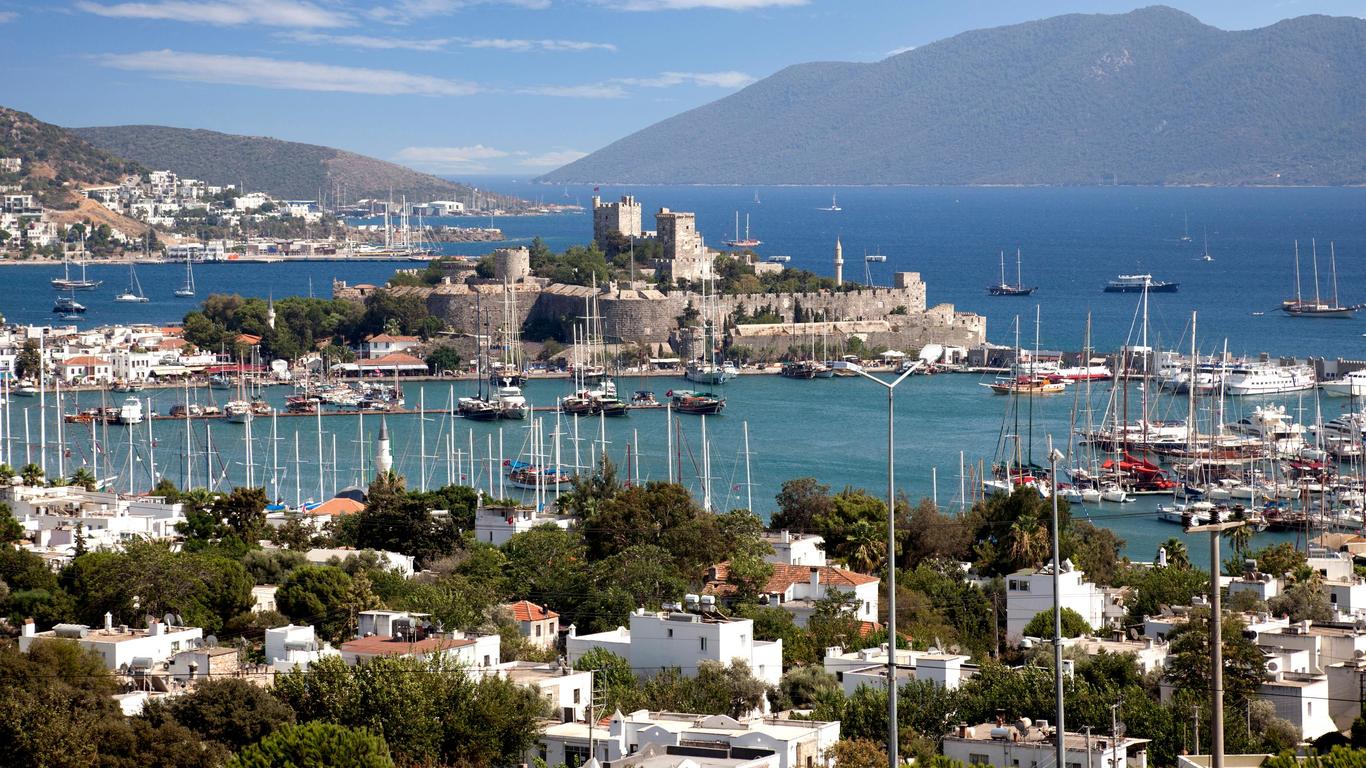A long-time seaside hideaway for affluent Turkish residents, Bodrum is now an “open secret” for thousands of international travellers who come to the Aegean region for its gleaming bay, lively nightlife, pristine beaches and exclusive social clubs. Strolling past whitewashed villas along curving lanes spilling over with hanging flowers and packed cafes, visitors get a taste of the good life on the serene southern coast on the Bodrum Peninsula.
Diners enjoy an eclectic mix of Greek and Turkish seafood delicacies in the village, with live blues, jazz and Latin music beckoning from dimly lit taverns or trendy wine bars. After exploring Bodrum Castle, built by the Knights Hospitaller in the 15th century and now housing the Museum of Underwater Archaeology, tourists can spend the afternoon cruising the peninsula, swimming and snorkelling in pristine offshore coves. Evening concerts at ancient Halicarnassus theatre, built into a rocky hillside, conjure images of gladiators duelling it out in the 4th century.
Taxi stands dot the major streets, including Cevat Sakir Caddesi and Neyzen Tevfik Caddesi, providing transportation around town and to the beaches, ferry docks and castle. An intra-city dolmus shared-taxi service provides an affordable alternative. Rental cars can be arranged from major hotels or picked up at Bodrum Airport, though parking is limited throughout the city.
Human habitation of the Turkish coast, including Bodrum, is known to date as far back as the Stone Age. Archaeologists have uncovered caves harbouring artefacts as old as 100,000 years. Previously named Halicarnassus, Bodrum was mentioned in Homer’s “Odyssey” and the famous Greek historian Herodotus was born there in the 5th century.





